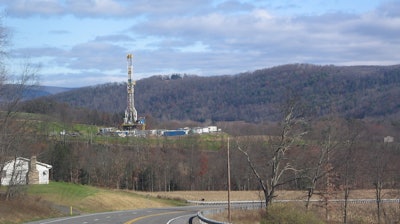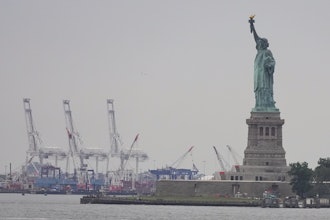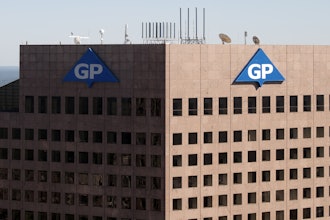
As Pennsylvania's governor touts the potential for billions of dollars in new investment by petrochemical manufacturers, his environmental agency is struggling to process applications to drill the natural gas wells that will be needed to supply the fledgling industry.
An analysis by the industry-funded Marcellus Shale Coalition shows that approval times for a key permit are going up in two of the three regional offices that review them. The Department of Environmental Protection confirmed that applications are lagging and pledged to do better.
The regulatory logjam is hurting Pennsylvania's competitiveness with other shale states like West Virginia, Ohio and Louisiana, said David Spigelmyer, president of the Pittsburgh-based trade group.
"We continue to have no certainty in this industry," he said.
The gas industry's complaints about permitting come as Democratic Gov. Tom Wolf makes a push to attract plastics and petrochemical manufactures that use natural gas as a feedstock.
Last week, Wolf released a report by the research firm IHS Markit that said Pennsylvania can support four additional petrochemical plants beyond the $6 billion facility Shell Chemicals is planning outside Pittsburgh. The Shell plant will convert ethane — a natural gas liquid found in the Marcellus and Utica shale formations — into plastic pellets that manufacturers use to make toys, food packaging, garden furniture and many other plastics products.
"Pennsylvania has a once-in-a-generation opportunity to develop and implement a strategy that will cultivate a manufacturing renaissance and transform our economy across the commonwealth," Wolf said in a statement accompanying the report.
But IHS Markit also warned Pennsylvania, faced with competition from other gas-producing states, "must begin taking immediate steps" to support long-term economic development. The report called for "aggressive action to address potential developmental and infrastructure constraints."
Spigelmyer said the permitting delays cost money and complicate efforts to schedule crews to drill and frack.
Drillers working in Pennsylvania's gas-rich southwest feel the bottlenecks most acutely. The regional office in Pittsburgh takes more than 200 days to process an erosion control permit, up from an average of 139 days in 2015, according to an industry analysis of government data.
The north-central regional office in Williamsport works far more quickly, taking only 40 to 45 days, even though it handles roughly the same number of permits. A third regional office, in the state's northwestern tip, also has seen a dramatic increase in permitting time.
Neil Shader, spokesman for the state Department of Environmental Protection, blamed the increasing delays on staff turnover, staffing shortages and enhanced scrutiny of permit applications. He said the agency is working to "enhance permit review consistency across its district offices" and also wants to improve the "quality" of the drillers' permit submissions, which he said would help staff work more efficiently.
A 2012 policy instituted by Wolf's predecessor, Republican Tom Corbett, was intended to streamline environmental permitting, requiring erosion control permits submitted through an expedited review process to be handled within 14 business days. But the environmental agency says most applications are disqualified from expedited review because they're incomplete or deficient.
Wolf's spokesman said regulators are testing an electronic permitting system — the agency still accepts only paper submissions for many types of permits — and working on other improvements that should make the process smoother.
The governor "recognizes that inconsistent review timelines among regional offices has resulted in frustration," said the spokesman, J.J. Abbott.
The permitting process has become bogged down even as gas drillers are pulling back. Stung by low prices, operators drilled only 500 wells last year, the fewest since 2008, when the Marcellus Shale industry was in its infancy. Drilling has picked up in the first three months of 2017 but still lags far behind the pace set in the boom years.
Spigelmyer said Pennsylvania, the nation's No. 2 natural-gas producing state after Texas, has an opportunity to use its natural resources to lure manufacturing jobs "if we get this right."
"We're at a tipping point if we are going to be a winner in developing jobs and long-term manufacturing opportunities," he said.






















